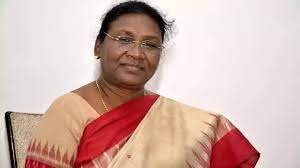The decision to not invite President Droupadi Murmu for the inauguration of the new Parliament building has sparked controversy, with opposition leaders expressing their discontent and labeling it as an insult to the President’s office. Prime Minister Narendra Modi is set to inaugurate the building on May 28, leading to criticism from various quarters.
One of the prominent voices of opposition, Jairam Ramesh, the Congress General Secretary (Communication), has referred to the new Parliament building as Prime Minister Modi’s “personal vanity project.” He took to Twitter to share a picture of the Prime Minister in the new parliament, emphasizing that Mr. Modi was the sole architect, designer, and worker involved in the construction of the building. Ramesh’s tweet implies that the project is driven by personal motives rather than the collective interest of the nation.
The absence of an invitation to President Droupadi Murmu, who holds the highest office in the country, has raised concerns among opposition leaders. They argue that excluding the President from such a significant event amounts to disrespecting the institution of the presidency. As the head of the state, the President plays a crucial role in upholding democratic values and maintaining the balance of power in the government.
The controversy surrounding the inauguration of the new Parliament building reflects deeper political divisions and tensions in the country. The opposition parties, particularly the Congress, have been critical of Prime Minister Modi’s leadership style and policies. They perceive the new Parliament building as a symbol of the Prime Minister’s dominance and his inclination towards a personalized approach to governance. This perception further adds fuel to the ongoing political debates and disagreements.
Supporters of the government, on the other hand, argue that the decision to invite the Prime Minister alone for the inauguration is justified as he has been directly involved in the planning and execution of the project. They believe that the new Parliament building is a testament to the government’s commitment to modernizing infrastructure and providing a conducive environment for legislative proceedings. According to them, the exclusion of the President from the event does not diminish the importance and dignity of the President’s office but rather highlights the Prime Minister’s role in the development of the project.
The controversy also raises broader questions about the relationship between the executive and the legislature in India’s parliamentary system. The Prime Minister, as the head of the government, holds significant influence and authority. However, the President, as the head of the state, represents the constitutional and ceremonial aspects of governance. The balance between these two roles is crucial for maintaining a healthy democratic system.
In light of the criticism and concerns expressed by the opposition leaders, it remains to be seen how the government addresses the issue. The decision to exclude the President from the inauguration has not only generated political debate but has also highlighted the need for a more inclusive and collaborative approach in governance. Moving forward, it is important for the government to consider the sentiments and expectations of all stakeholders to ensure a harmonious functioning of the democratic institutions and to uphold the dignity of the President’s office.


